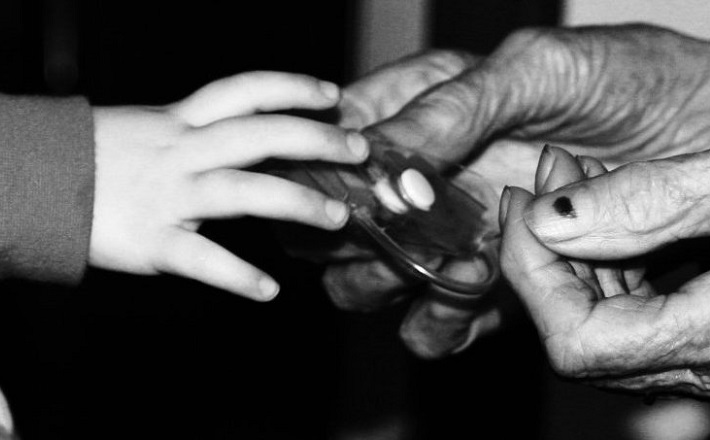Commentary on James 3:13—4:3, 7-8a
The big and essential question that engages the preacher and the hearer in this reading is announced in its opening verse: Who is the wise person? And what’s to know?
Actually the reading is simply continuing the reflection on true and false wisdom that encompasses this central portion of the epistle of James. As usual the answer that comes is ostensibly simple and direct: good works are the mark of one who possesses wisdom. In so many words, you will know wisdom by its fruits. As usual, the author of James’s theology is practical and down to earth.
Precisely because wisdom’s insights are so practical — about “doing” things — readers with a “religious” interest are often prone to shun its insights or to cast aside as not particularly theological. But that is the way of wisdom. Its insights are indeed very “theological, “ i.e. they are about God and God’s relation to us as the creation. Wisdom assumes that because wisdom is the supreme gift of God to humans, reflection on the religious life and what it means to live in relation to God is always going to be very practical. The gifts of God have an immediate and very practical purpose — they intend and point to a fullness of life exercised in a disciplined love and care for the neighbor. Spirituality is not a matter of escape from this world, but it is to be exercised and most visible in a healthy life of interaction with the day-to-day affairs of this world.
A missing center
For the careful reader it will be important to risk sneaking a peek at what the lectionary has chosen to omit from the reading. The omitted verses 4-6 of chapter 4 are a foundational key for the reflections on wisdom and true spirituality in this section, and in some ways point us to the theological heart of the epistle of James as a whole.
Verse 5 appeals to scriptural tradition for its assertion that it is of utmost significance (“it is not for nothing that scriptures says … ”) that “God yearns for the Spirit that he has caused to dwell in us.” The capitalization of “Spirit” is mine, not in the NRSV text. In the original language the word “spirit” is never capitalized and thus it is often difficult to determine to what “spirit” reference is being made, the Spirit of God, the human spirit, or some other spirit. If James has often been criticized for lacking any clear confession of Jesus Christ as the Word of God, or any clear acknowledgement of the presence of the Spirit in its theological frame. Then such a reading would argue otherwise. Just as the Word is present and assumed in the “word of truth” and the “implanted word” of James 1:18 and 21, so the Spirit of God would be assumed in this talk of God’s yearning presence over the creation.
But there is yet what seems to me an even more promising alternative reading. In the original of verse 5 there is also no word “God” in the text as in the NRSV translation. In fact the subject of the verb “yearns” is unclear. However, the grammar of the original makes it quite possible that “spirit” is not the direct object but rather the subject of the verb here. Thus my preference would be to read: “(God’s) Spirit yearns over that which he has made to dwell in us.” If this were not enough, compelling support is to be seen in the following verse, where the author goes on to assert that this Spirit of God continues to give even more (greater) grace to those who in wisdom live and walk humbly before God.
In sum, at the heart of this reflection on true and false wisdom stands the conviction and confession that wisdom is a sign of the Spirit’s indwelling presence, and a confirmation of the ongoing grace of God that is at work in those who seek to be faithful in the exercise of “pure religion” (to use James’ language from James 1:27).
Wisdom as practical gift
As noted in last week’s comments, to the mind of James the gift of wisdom is intensely practical. He has already stated that its presence is to be seen in the good works that it produces. And now (verses 14-18) the practical “consequences” of true and false wisdom are exposed. False wisdom is to be seen in selfish ambition, envy, and boastfulness. That is to say, it is self-centered and inward looking, “earthly,” “unspiritual,” and “demonic” to use James’ language (James 3:15). The true wisdom that comes from above as God’s gift, on the other hand, is marked by a practical purity that is evidenced in qualities of peacefulness, gentleness, willingness to yield to the other, mercy, and other good fruits that are devoid of partiality and hypocrisy. Not surprising nor a matter of apology that these qualities sound very much like what common sense would identify as goodness. Because that is the way of wisdom. It is a summation all that common sense would identify as the marks of wholeness in human relationships, as the very best of God’s gifts in creation. Nor, interestingly, should it be surprising that these qualities sound very much like those qualities that Paul in his letter to the Galatians identifies as the “fruit” of the Spirit — love, joy, peace, patience, kindness, generosity, faithfulness, gentleness, and self-control (Galatians 5:22).
Dealing with conflict
We might imagine that it is only we moderns for whom conflict is a problem. But James lifts up as one of the greatest of the gifts of wisdom its capacity to lead humans to peaceful resolution of conflict. (James 3:18). Furthermore, in what seems only too modern in theme, James identifies our difficulty in satisfying our insatiable wants and desires for things as the root cause of the inevitable coveting and cravings that lead to conflict, disputes, and eventually to outright war (James 4:1-3). In ironic reversal, it is then our repeated experience that what we might see as feeding the end goal of our pleasure, becomes instead the harbinger of death (James 4:2).
Learning to pray rightly
Of course, for James, the answer to these conflicts is to learn what the gift of wisdom has to offer in its taming of these excessive desires. James argues that this learning has to do with our learning how to pray rightly. Confidence in the good gifts of God means that we will pray with confidence for the expression of those gifts within ourselves — and then know with confidence that God through the Spirit stands ready to grant our requests.
Nearness to God
This is what I think the nearness to God that James is talking about in James 4:7-8 has to do with. To pray rightly is to imagine a “friendship” (James 4:4) with the very creator of “every good gift” God’s gifts have the ability to center our lives in good works that flow from God’s indwelling Spirit. In our human relationships it is much easier to walk the daily journey amid the sometimes difficult decisions and choices we are called to make when a close friend or a broader community of encouragers and supporters surrounds us. So the same is true when we live in a relationship of nearness and trust in a God who continues to supply us with wisdom and every good gift of creation. In the presence of One whose Spirit yearns over us we can imagine that we will not be left to drift in a state of “double-minded” incapacity (James 4:8; see also James 1:5-8). Instead we will be inspired to the exercise of wisdom in humility — in making the fine choices that are “born of wisdom” (James 3:13) and which lead to the kind of “harvest of righteousness” (James 3:18) seen in peaceful human relationships.


September 20, 2015